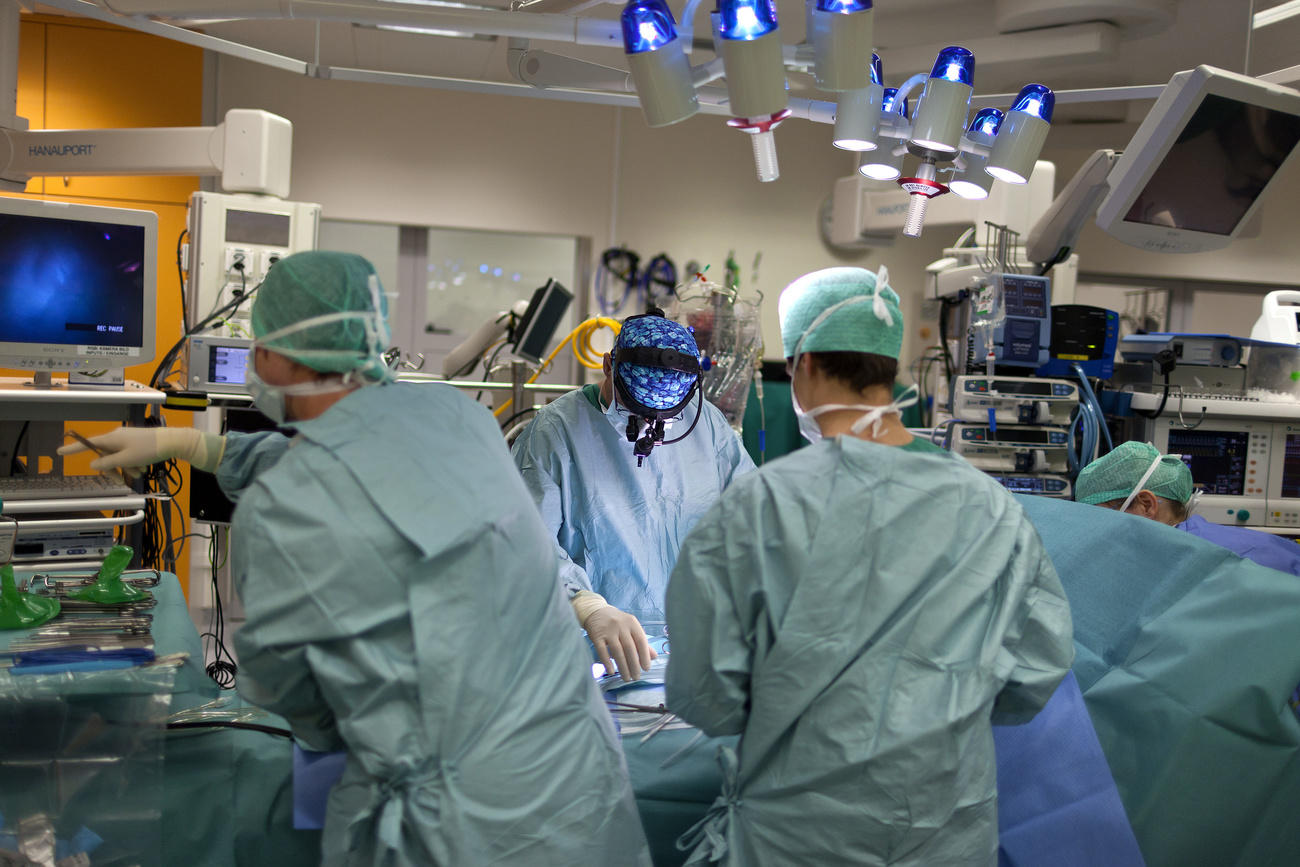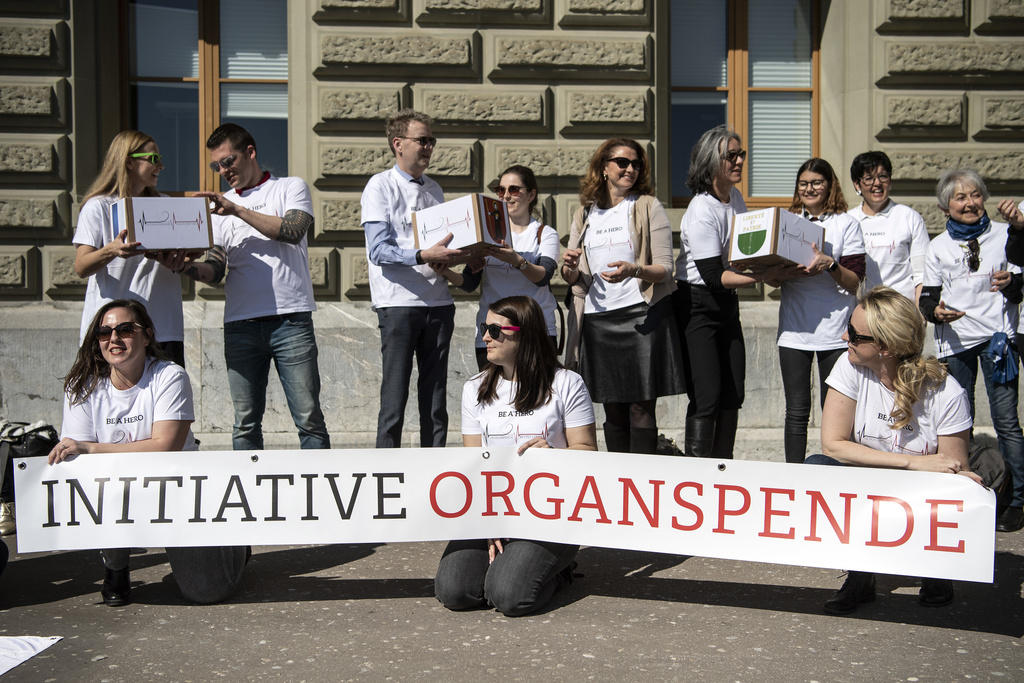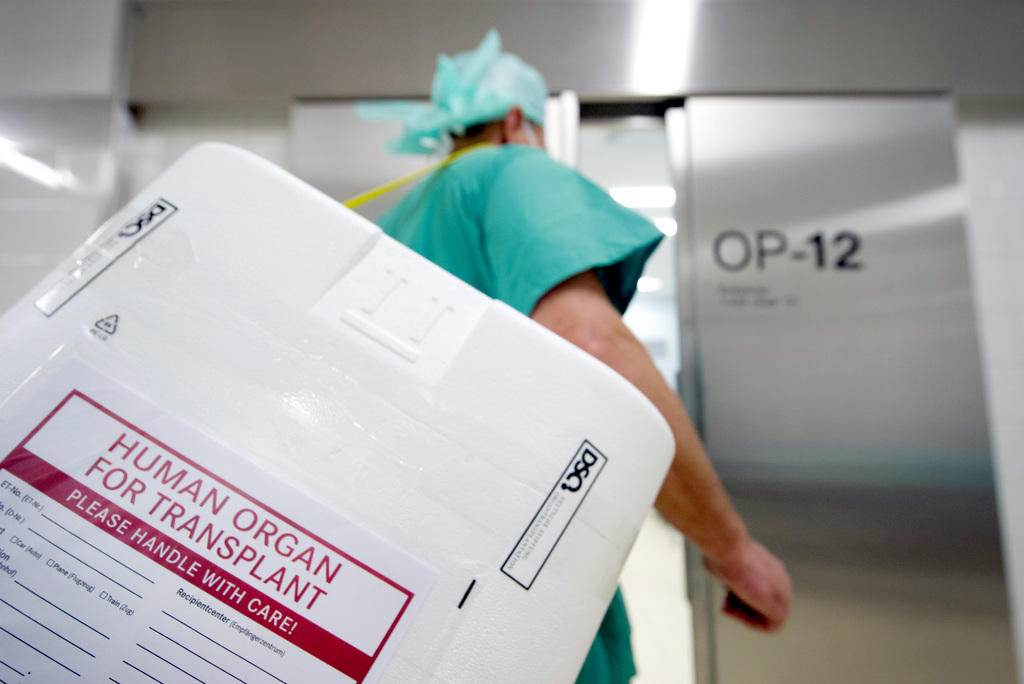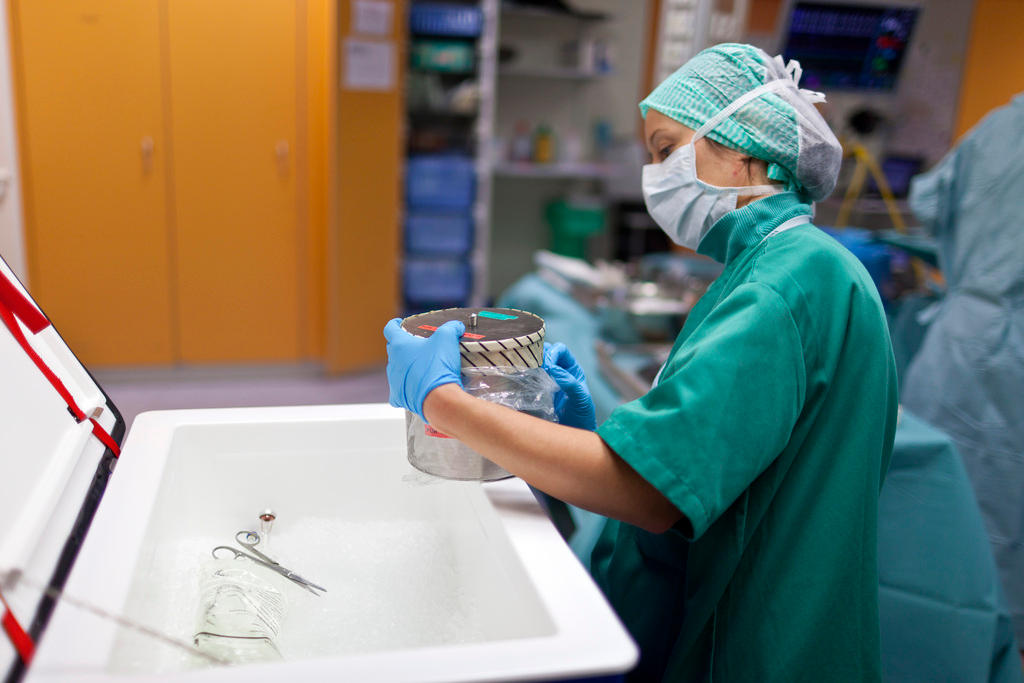Swiss machine keeps human livers alive for a week

Zurich scientists have developed a machine that repairs injured human livers and can keep them alive outside the body for one week. They said this breakthrough may increase the number of available organs for transplantation, saving many lives of patients with severe liver diseases or cancer.
When the Liver4LifeExternal link project started in 2015, livers could be stored safely outside the body for only a few hours, researchers from the University Hospital Zurich, Zurich’s Federal Institute of Technology (ETHZ), Wyss Zurich and the University of Zurich said on Tuesday.
“With the novel perfusion technology, livers – and even injured livers – can now be kept alive outside the body for an entire week,” they said in a statementExternal link.
“Injured cadaveric livers, initially not suitable for use in transplantation, may regain full function while perfused in the new machine for several days.”
The basis for this technology is a complex perfusion system, mimicking most core body functions close to physiology. A pump replaces the heart, an oxygenator the lungs, a dialysis unit the kidneys. Hormone and nutrient infusions do the job of the intestine and pancreas, and rhythmic movements imitate the diaphragm.
The study was published on January 13 in the scientific journal Nature Biotechnology.
Transplant figures
Also on Tuesday, SwisstransplantExternal link, the national organ donation organisation, reported that the transplantation figures for 2019 were the same as the previous year.
Organs were transplanted from 157 dead people last year, one fewer than in 2018. A total of 582 people received at least one organ from these donors, and 21 patients received several organs. In addition to the deceased donors, 110 living people donated their organs.
Kidney transplants were the most common (332), ahead of liver (168) and heart and lung (both 39); 25 people received a pancreas.
There was also hardly any change in the number of people waiting for an organ: 1,415 people were on the list, three more than in 2018. Of these, 1,057 were waiting for a kidney, 209 a liver, 89 a heart, 57 a pancreas, 45 a lung and two a small intestine.
Last year 46 people on the waiting list died.

More
Three-quarters of Swiss back new organ donation system

In compliance with the JTI standards
More: SWI swissinfo.ch certified by the Journalism Trust Initiative



You can find an overview of ongoing debates with our journalists here. Please join us!
If you want to start a conversation about a topic raised in this article or want to report factual errors, email us at english@swissinfo.ch.